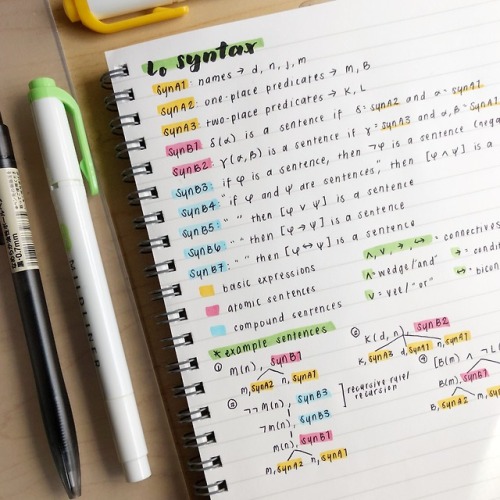From Beginner To Intermediate: An Intense Plan For Advancing In Language
From Beginner to Intermediate: an intense plan for advancing in language
Introduction
I studied Spanish at school for 3 years and now I'm at a low B1 level. I can actually understand pretty well while listening or reading but I can't communicate fluently.
This plan will include vocabulary build up, some grammar revision, a lot of listening, reading and writing. And could be used for the most languages, not only Spanish.
Plan
Every day:
Conjugate one verb in present, past and future tenses
Make a list about 10 - 30 words long
Create flashcards with them and start learning them (I use Quizlet for flashcards)
Revise yesterday's set of flashcards
2-3 times a week:
Read an article or a few pages from a book
Write a few sentences about anything in your target language
Listen to one episode of podcast (at least one)
Once a week or every two weeks:
Watch a movie in your target language, preferably animated movie as the language used there is easier. You can watch with subtitles
Grammar exercises
Translate some short text
Once a month:
Write something longer, like an essay or report, on chosen topic
Additionally:
Talk to yourself, to your friends, to your pets
Text with someone
Look at the transcription while listening to the podcast for second time
Repeat what you hear (in podcast or movie)
Check words you don't know from the listening and reading
Read out loud
Listen to music in your target language - you can even learn the text and sing along
Watch YouTube in your target language
Change your phone language to the one you're learning
Think in you target language!!!
***This is very intense plan for self-learners, you don't have to do all of these things in the given time. Adjust it to your own pace. I'll try to stick to this, if I have enough time.***
More Posts from Purpletelescope and Others
Important things I learned while studying Astrophysics
During presentations, 90% of the people won’t know anything about your topic, no one will notice minor mistakes
During presentations, 75% of the people won’t even listen to you
Don’t compare yourself to others. There will always be someone smarter than you, and the people you think of as smart, think of themselves as really dumb
The profs, the TAs and everyone else is also just a human. They are not perfect and have other things to do than run after and care for you.
Take care of your own shit. Always
If you work in groups, don’t be selfish. Just because you think you dont need to hand in that last paper because your grade is secure anyway, it does not mean that the others feel the same. Dont pull them down because you are lazy
If it seems too easy, you’re doing it wrong
Just because a person seems to sound convincing, check their data, they’ve usually ignored gravity or temperatures
Knowing professors personally can be both good and bad, good when it comes to jobs and favours, bad when it comes to oral exams
Buying books is useless when you can just get them from the library and sit on them for a year. Especially when there are no textbooks, but only specific literature costing around 600 € per book
Reading papers is the way to go. Always.
When showing your work/thesis, try to explain the process as simple as possible, while at the same time make your work look as hard and complicated as possible (Quote from a guy I work with: “It looks too easy for the public!”)
Learn how to work with others. You won’t get far on your own.
If English is not your native language, learn it! You will need it
Your humour will consist of science jokes and math references. Good luck making friends in the real world

february 4, 2018 — rewriting my semantics notes into more cheat sheet looking things!! ╭( ・ㅂ・)و"))
♫ EVERYTHING FROM THE PERFECT RED VELVET




September 1, 2020 - physics studies.
It's September already! August was a tough month for me and I'm so excited to welcome the better days ahead <33 ☁️ September, please be nice 💫
(ノ◕ヮ◕)ノ*:・゚✧ Keep on working hard and take care of yourself friends ♡
🎶 Dynamite - BTS










Sometimes I open this book again every once in a while to just see these. God I miss my shitty handwriting (that's a lie. No I do not.)











Preparing for your exams
Check whether you have anything you haven’t studied. If you do, list them out in a paper/document. Put them into three categories:
1. Things you are not familiar with at all (that you probably haven’t paid attention during class, and haven’t read through them)
2. Things you have already gone through once and have a rough idea what it is about, but not clear with the details
3. Things you are quite familiar with, that you just want to go through them once again to memorise them
It is very important that you have every content of your exam syllabus on the second level around 2-7 days before your exams (depends on the amount of materials that is going to be on the papers)
So you should make a timetable to go through everything if you still have a few days/weeks
Don’t try to spend so much time actually memorising them for now. The key right now is to understand everything, so that they can be in your long-term memory.
You can leave other small details and examples (that probably requires your short-term memory) till the last week/last three days before exams.
If you have the feeling that you MUST remember things word by word / very clearly, mark them with a red pen or something to make sure they stand out so you can quickly memorise them during the final review.
You can also make index cards during this stage
Which may help you to organise the information and help you to stay focus (without wasting you so much time in making full and comprehensive notes)
And to quiz yourself during your final review
Final Review - 2-3 days before your exams
Scientific research shows that we are all very good at recognising things, but that does not mean that we are good at recalling them (which is exactly what requires during exams)
So, instead of just reading your notes, definitely quiz yourself using flashcards, or just look at the heading of the notes and recall as much information as possible
“no I have to memorise everything first before quizzing myself”??
No, not really. It is known that even pre-quiz can help you to remember the information better! Quickly quizzing yourself once to understand which areas you are least familiar with so you can focus more on those chapters in your final review
It actually does activate your mind too since you will be curious about the information (after knowing you cannot recall them during the quiz) - that can help you to remember better
Memorise in the right way!
Auditory learner: read the information out loud / try to teach others
Visual learner: recall the information by writing them all out in a piece of blank paper (feynman technique)
You can recall the information better when you are in the same kind of environment (scientifically proven)
That is, if you exam hall is silent, it’s better for you to remember things in silence
Even works for your condition too.
If you take energy boosting drink while your are studying, you can probably recall the information better if you drink them before exams (same as NOT drinking energy boosting drink too)
Write a list of very important keywords / information / equations as a final summary
The morning before your exams
Try not to go through anything new, you probably can’t remember/understand them anyway
The best thing to do is probably simply to go through the summary sheet you made before exams. It will help you to recall all the information you have memorised + you won’t panic since it’s everything that you have already studied
Breakfast, remember. You don’t want to be starving during exams.
#10 || Link to my study tips series - I post once a week here! (strive-for-da-best)
very specific types of physicists
emeritus: a well-meaning retired professor who still frequents the department. occasionally seen jogging up and down the halls of the lab. it’s how he gets his daily exercise. his field of research is obsolete and he spends most of his days making art based on physics equations. asks all of the female undergrads if they plan to teach high school physics.
star child: no one will measure up to this alumnus. they started research in high school, graduated from undergrad a year early with a few papers already under their belt, and finished their phd (at a very prestigious university) in two years. they visit occasionally to present their research and talk to the undergrad physics students. very down to earth and kind. undergrads, grad students, and professors alike are in awe.
father figure: this prof’s lectures are full of dad jokes, metaphors comparing the behaviors of particles with sugared-up three-year-olds, and digressions about something that’s more fun to talk about than the subject matter. says “i’m not angry, just disappointed” when the class does poorly on an exam. when you go to his office hours there is almost always a child or two underneath his desk or drawing on his whiteboard (the bottom third of which is always covered in stick figures and scribbles). intensely watched the construction from his office window as a new laboratory was being built.
academic rival: you were friends over the summer when you were both doing research but they became distant. small talk always turns into bickering about the importance of your respective research when you run into each other getting coffee in the common room. begrudgingly you admit to yourself, they’re really good at what they do. thank god you don’t belong to the same research group.
harsh but kind: brilliant researcher with high expectations of their students. will offer and make you tea as they grade your problem sets (with commentary) in front of you. after your semester in their class, you buy a bag of loose-leaf jasmine green tea because they got you hooked on it.
the politician: buddies with some higher-ups in university admin and the heads of other colleges. your peers derail class by bringing up current events. has a fixation on swords and genealogy. a bit of an anglophile. you took apart a transistor radio with them once. will make formal complaints to the math department on your behalf.
melancholy teaching professor: very cynical from a career in academia but here to have fun. one of the friendliest faces in the department. organizes the students and faculty to do outreach and lugs physics demos all around the tri-county area. talks to the undergrads like they are people. always kind of sad, it makes you wish you could fix all of the ills of academia for them.


14.08.20
i’m so used to just filling in blank lec slides for maths but had to start writing my own notes for diff eq ✏️
math help bc i can’t watch ya’ll suffer anymore
I’m in my fourth year of engineering school and I didn’t get here without lots of outside help bc assigned math textbooks are lame and confusing and professors/teachers are more worried about feeling superior to bunch of groggy teenagers than actually teaching.
I have personally used all of these websites without receiving any security warnings from Bitdefender TrafficLight or AdGuard AdBlocker. They are all either completely free or have a free version that isn’t shit.
Wolfram Demonstrations (animated graphics)
Khan Academy (arithmetic through differential equations)
She Loves Math (arithmetic through differential equations)
math24 (calculus & differential equations)
Paul’s Online Math Notes (algebra through differential equations)
MIT OpenCourseWare (calculus through graduate-level mathmatics)
OpenStax Math (precalculus, trigonometry, & calculus)
Wolfram Alpha Examples
Desmos (online calculators)
GeoGebra (online calculators)
SparkNotes Math Study Guides (pre-algebra through calculus)
eMathHelp (calculators, but more specific)
Software for your TI calculator
ticalc (programs for your TI calculator)
Wikibooks Math Department (all the math)
Andy’s Cheat Sheets (calculus)
Cheatography (find free cheat sheets)
Open Access Math Textbooks
Engineer4Free (Calc, DiffyQ, & Linear Algebra tutorials)
Flammable Maths on YouTube (general high school/college level problems and derivations)
3Blue1Brown on Youtube (very, very good for understanding spacial concepts in calculus and beyond)
Vihart on Youtube (explaining math with doodles)
Bonus: Stay hydrated, take vitamin c, study next to a window during the day if possible, and remember not to let people base your worth on your aptitude for math.
-
 goddess-of-light liked this · 2 weeks ago
goddess-of-light liked this · 2 weeks ago -
 neutrallatte-ma reblogged this · 1 month ago
neutrallatte-ma reblogged this · 1 month ago -
 juljanda liked this · 1 month ago
juljanda liked this · 1 month ago -
 westernsunshine reblogged this · 2 months ago
westernsunshine reblogged this · 2 months ago -
 pallid-etoiles liked this · 2 months ago
pallid-etoiles liked this · 2 months ago -
 mightbejg liked this · 2 months ago
mightbejg liked this · 2 months ago -
 airedelalmena liked this · 3 months ago
airedelalmena liked this · 3 months ago -
 imperatornumidicus liked this · 3 months ago
imperatornumidicus liked this · 3 months ago -
 byronsmuse reblogged this · 3 months ago
byronsmuse reblogged this · 3 months ago -
 angelshortforangel liked this · 4 months ago
angelshortforangel liked this · 4 months ago -
 organised-kitty reblogged this · 4 months ago
organised-kitty reblogged this · 4 months ago -
 organised-kitty liked this · 4 months ago
organised-kitty liked this · 4 months ago -
 langivi liked this · 4 months ago
langivi liked this · 4 months ago -
 kaityslangblr reblogged this · 4 months ago
kaityslangblr reblogged this · 4 months ago -
 333876 liked this · 5 months ago
333876 liked this · 5 months ago -
 smallchangeshappening reblogged this · 5 months ago
smallchangeshappening reblogged this · 5 months ago -
 burnt-tomato-slush liked this · 6 months ago
burnt-tomato-slush liked this · 6 months ago -
 thewolrdisburningyetwedance liked this · 6 months ago
thewolrdisburningyetwedance liked this · 6 months ago -
 cb-reblogs reblogged this · 6 months ago
cb-reblogs reblogged this · 6 months ago -
 liechen liked this · 6 months ago
liechen liked this · 6 months ago -
 anna806fq liked this · 6 months ago
anna806fq liked this · 6 months ago -
 annita89dbkatrdmh liked this · 6 months ago
annita89dbkatrdmh liked this · 6 months ago -
 mariba2000 liked this · 7 months ago
mariba2000 liked this · 7 months ago -
 n0sbleed reblogged this · 7 months ago
n0sbleed reblogged this · 7 months ago -
 wordwiseway reblogged this · 7 months ago
wordwiseway reblogged this · 7 months ago -
 fairylighttea reblogged this · 8 months ago
fairylighttea reblogged this · 8 months ago -
 radiant-7 reblogged this · 8 months ago
radiant-7 reblogged this · 8 months ago -
 twadi-gurl reblogged this · 8 months ago
twadi-gurl reblogged this · 8 months ago -
 mrs-realistic liked this · 8 months ago
mrs-realistic liked this · 8 months ago -
 disco-ball-enthusiast liked this · 9 months ago
disco-ball-enthusiast liked this · 9 months ago -
 matthclders liked this · 9 months ago
matthclders liked this · 9 months ago -
 epicureanenigma liked this · 9 months ago
epicureanenigma liked this · 9 months ago -
 marsvs-thesun liked this · 10 months ago
marsvs-thesun liked this · 10 months ago -
 nuit-tendre liked this · 10 months ago
nuit-tendre liked this · 10 months ago -
 losh21 reblogged this · 11 months ago
losh21 reblogged this · 11 months ago -
 ahmedcito liked this · 11 months ago
ahmedcito liked this · 11 months ago -
 mmc028 liked this · 11 months ago
mmc028 liked this · 11 months ago -
 soballoonist liked this · 11 months ago
soballoonist liked this · 11 months ago -
 zemljoradnik liked this · 1 year ago
zemljoradnik liked this · 1 year ago -
 thebipolarrogue reblogged this · 1 year ago
thebipolarrogue reblogged this · 1 year ago -
 cherrybannisters liked this · 1 year ago
cherrybannisters liked this · 1 year ago -
 paasaatry reblogged this · 1 year ago
paasaatry reblogged this · 1 year ago -
 thefourthwallhasbroken reblogged this · 1 year ago
thefourthwallhasbroken reblogged this · 1 year ago -
 feelthemadnessinside liked this · 1 year ago
feelthemadnessinside liked this · 1 year ago -
 spider-incarnate reblogged this · 1 year ago
spider-incarnate reblogged this · 1 year ago




